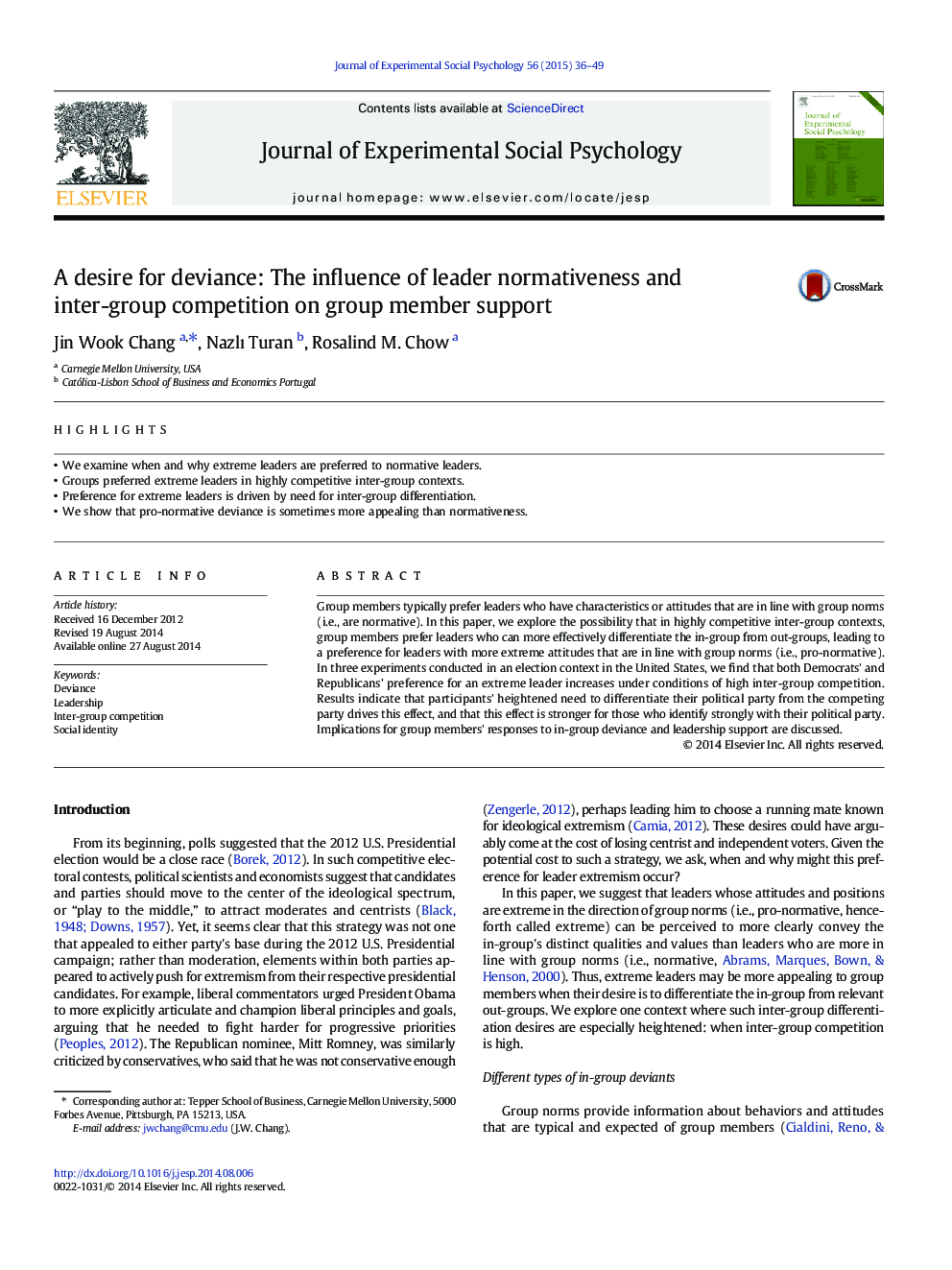| Article ID | Journal | Published Year | Pages | File Type |
|---|---|---|---|---|
| 947723 | Journal of Experimental Social Psychology | 2015 | 14 Pages |
•We examine when and why extreme leaders are preferred to normative leaders.•Groups preferred extreme leaders in highly competitive inter-group contexts.•Preference for extreme leaders is driven by need for inter-group differentiation.•We show that pro-normative deviance is sometimes more appealing than normativeness.
Group members typically prefer leaders who have characteristics or attitudes that are in line with group norms (i.e., are normative). In this paper, we explore the possibility that in highly competitive inter-group contexts, group members prefer leaders who can more effectively differentiate the in-group from out-groups, leading to a preference for leaders with more extreme attitudes that are in line with group norms (i.e., pro-normative). In three experiments conducted in an election context in the United States, we find that both Democrats' and Republicans' preference for an extreme leader increases under conditions of high inter-group competition. Results indicate that participants' heightened need to differentiate their political party from the competing party drives this effect, and that this effect is stronger for those who identify strongly with their political party. Implications for group members' responses to in-group deviance and leadership support are discussed.
